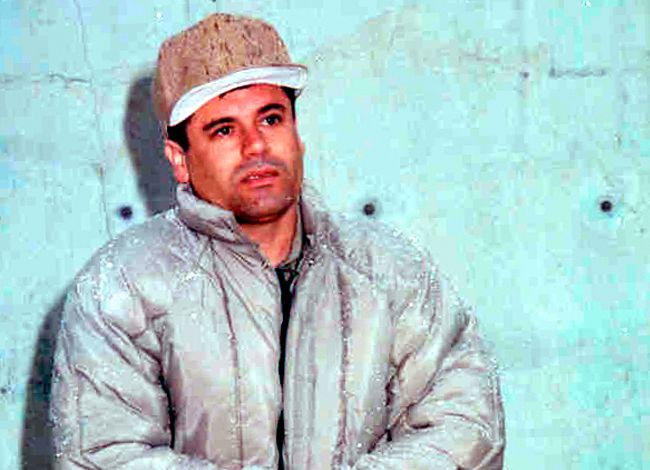
Carlos Roberto Funes, vice minister in Honduras' defense department, told Spanish newspaper El Mundo on Wednesday that Joaquín "el Chapo" Guzmán, leader of Mexico's Sinaloa drug cartel who has made the Forbes list of the world's most powerful people, "could be in Honduras". Funes' admission of the possibility marks the first such nod on the part of public officials in the US and Central America, though it has long been an open secret that the Mexican cartel leader might've slipped out of the country.
Funes also acknowledged that Guzmán's cartel controls much of the flow of drugs within the Central American country. Mosquitia, a region on the northeastern Honduran coast which consists largely of jungle, is considered one of the most active drug-trafficking corridors in the world, with an estimated 80 percent of the cocaine which reaches the United States by sea passing through Mosquitia en route. "We now have between 180 and 200 illegal air strips in the country," Funes told El Mundo. "They're air strips of a kilometer in length, but recently we found one which was 2.5 kilometers long. The cartels are preparing to bring in bigger planes."
To construct them, Funes said, drug traffickers work under cover of night, using heavy machinery illuminated by car batteries. "We've destroyed between 80 and 100 air strips in the last three years, but people who live in the place, who feel like they're part of the business, come back and repair them." Once the planes carrying the drugs land, the shipments are loaded onto high-speed motorboats. "Normally the planes aren't of any interest anymore" then, Funes said, "and they burn it. The traffickers rarely come back for them unless they're big planes." He added that traffickers often modify the storage compartments of the planes so that they can fly for six hours from Venezuela or Colombia, carrying as much as 1,000 kilos of drugs in a 210-model aircraft.
Excelsior notes that in August 2012, drug-enforcement agencies in Central America and the United States made public that Guzmán's Sinaloa cartel had established strong connections in Honduras and Guatemala. There are signs that traffickers have been getting better at avoiding law enforcement in the US. According to Excelsior, in 2011, 21 tons of cocaine were confiscated by authorities, but in 2013 only two were captured. The price of cocaine, meanwhile, has fallen in the US. Much of the drug's cost is due to transportation by middlemen - according to intelligence agency Stratfor, a kilogram of cocaine which goes for $2,200 in the jungles of Colombia's interior goes for between $24,000 and $27,000 in the United States.
RELATED: El Chapo Guzman Tried To Buy Anti-Aircraft Missiles, Weapons From US Citizens, Says Justice Deptment
© 2025 Latin Times. All rights reserved. Do not reproduce without permission.




